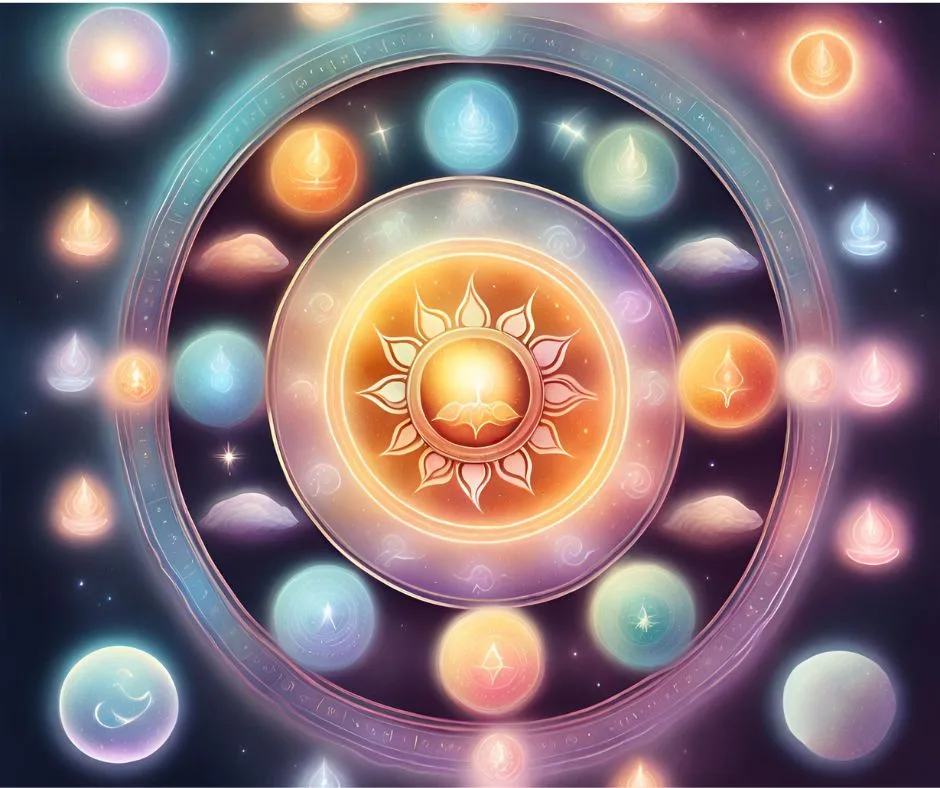Vedic Astrology: Unlocking the Mysteries of the Universe
Astrology has fascinated humanity for centuries, offering insights into our personalities, relationships, and life's purpose. While Western astrology is well-known and widely practiced, there is another ancient system that provides a unique perspective - Vedic astrology, also known as Hindu astrology. In this comprehensive guide, we will explore the origins of Vedic astrology, delve into the 12 Vedic signs, and uncover the key differences between Vedic and Western astrology.
Origins of Vedic Astrology
Vedic astrology, rooted in the Vedas, the ancient Indian texts, has a long and rich history. It is believed to have appeared in the Rigveda, an ancient Indian scripture, dating back thousands of years. The Sanskrit word for Vedic astrology, "jyotiṣa," translates to "light/heavenly body," highlighting its connection to celestial movements and their impact on human affairs. Initially used to determine auspicious dates for rituals and sacrifices, Vedic astrology evolved into a personalized system for understanding one's destiny and life path.
According to Vedic teachings, life is a journey of spiritual growth guided by the concept of karma - the idea that every thought and action has consequences. The position of the planets and stars at the time of our birth is believed to influence our karma, shaping our experiences and challenges. By analyzing these planetary positions, Vedic astrology offers a profound understanding of our individual nature and destiny.
The 12 Vedic Signs
Similar to Western astrology, Vedic astrology consists of 12 signs, each representing specific traits and characteristics. However, the dates associated with these signs differ due to the use of a sidereal system, which considers the changing constellations. Let's explore the 12 Vedic signs and their corresponding dates:

- Aries (Mesha): April 13 - May 14
- Taurus (Vrishaba): May 15 - June 14
- Gemini (Mithuna): June 15 - July 14
- Cancer (Karkata): July 15 - August 14
- Leo (Simha): August 15 - September 15
- Virgo (Kanya): September 16 - October 15
- Libra (Tula): October 16 - November 14
- Scorpio (Vrishchika): November 15 - December 14
- Sagittarius (Dhanus): December 15 - January 13
- Capricorn (Makara): January 14 - February 11
- Aquarius (Kumbha): February 12 - March 12
- Pisces (Meena): March 13 - April 12
Vedic Astrology vs. Western Astrology
While both Vedic and Western astrology share the common goal of understanding human nature and destiny through celestial influences, there are fundamental differences between the two systems.
1. Calendar Systems
One of the key distinctions lies in the calendar systems used. Western astrology follows the tropical calendar, which is based on the four seasons. In contrast, Vedic astrology employs the sidereal system, which accounts for the changing positions of constellations. As a result, the dates associated with the signs differ between the two systems.
2. Focus on Karma and Dharma
Vedic astrology places a strong emphasis on karma - the law of cause and effect. It views astrology as a tool for understanding one's individual karma and dharma (life path). By analyzing the planetary positions, Vedic astrology offers insights into past actions and their consequences, as well as guidance for fulfilling one's purpose in this lifetime. Western astrology, on the other hand, tends to focus more on psychological aspects and personality traits.
3. Retrogrades and Planetary Aspects
The interpretation of retrogrades and planetary aspects also differs between Vedic and Western astrology. In Western astrology, all planets share the same types of aspects, such as squares, trines, sextiles, or oppositions. In Vedic astrology, each planet has specific aspects and strengths assigned to them. Additionally, Vedic astrology considers the rising sign (ascendant) to be more significant than the sun sign, as it sets the foundation for the entire chart.
Is Vedic Astrology More Accurate?
The question of accuracy in astrology is subjective and varies from person to person. Some individuals resonate more with Vedic astrology, finding its focus on karma and dharma insightful and relevant to their lives. Others may connect better with Western astrology and its psychological approach. Ultimately, the accuracy of astrology depends on the interpretation and expertise of the astrologer, as well as the individual's openness to the insights provided.
Learning More About Vedic Astrology
If you're interested in delving deeper into Vedic astrology, there are various resources available to expand your knowledge. Books such as "Vedic Astrology for Beginners" by Pamela McDonough and online courses can provide valuable insights into the principles and techniques of Vedic astrology. Additionally, consulting with experienced Vedic astrologers can offer personalized guidance and interpretations tailored to your specific birth chart.
Embrace the Wisdom of the Universe with AstroFree.co
For astrology enthusiasts seeking further insights, birth chart readings, and relationship advice, AstroFree.co is a valuable resource. Our team of experienced astrologers is dedicated to providing valuable resources to help you navigate the complexities of life and relationships. Embrace the wisdom of the universe and embark on a journey of self-discovery with AstroFree.co.
Conclusion
Vedic astrology offers a unique perspective on astrology, rooted in ancient Indian traditions and the concept of karma. By understanding the positions of the planets and stars at the time of our birth, we can gain profound insights into our individual nature, destiny, and life path. While both Vedic and Western astrology have their merits, exploring the intricacies of Vedic astrology can deepen our understanding of ourselves and the universe we inhabit. Whether you resonate with Vedic astrology or prefer Western astrology, the wisdom of the cosmos awaits your exploration.


